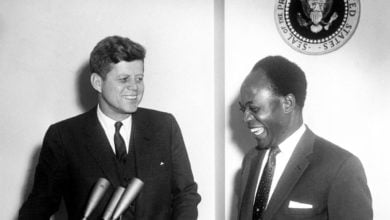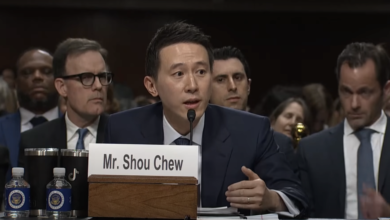Recent moves by the U.S. military have escalated tension on the Korean peninsula and evidenced the Trump administration’s dangerously belligerent policies in East Asia. On top of massive war exercises that the U.S. and South Korea conduct on at least an annual basis, the U.S. has started deploying the Terminal High Altitude Area Defense System (THAAD), and has sent attack drones to be permanently stationed in the south.
The U.S. sent SEAL Team 6 (the team responsible for killing Osama Bin Laden) and Special Forces operatives to participate in a simulated “decapitation attack” on the Democratic People’s Republic of Korea (DPRK, or North Korea). And on March 17, Secretary of State Rex Tillerson rejected the possibility of negotiations with the DPRK.
Instead of the enormous war games involving hundreds of thousands of troops, the highly questionable accusation that North Korean officials had a role in the killing of a man — allegedly DPRK President Kim Jong Un’s half-brother — at Kuala Lumpur airport on Feb. 13, has filled the media.
The Malaysia incident is very suspicious, and timing not just a coincidence. First, the government refused to allow any Korean official to be present at the autopsy of the deceased, or allow them to identify the body, even though Malaysian officials claimed it is that of Kim Jong Nam. Second, Malaysia claimed he was killed with VX nerve gas by two women who supposedly smeared his face with the chemical by their bare hands.
This scenario is ludicrous. VX is so deadly that not even gloves can protect a person from fatal exposure.
And more than ludicrous, it is a sinister ploy — unfolding two weeks before the U.S.-South Korea war exercises — to justify the U.S.’s demonization of DPRK and outright threats of war.
As the United States is ratcheting up tension on the peninsula, it is imperative for progressives to have a clear analysis of what is really happening and effectively stand in solidarity with the people of Korea.
The people bring down the Park regime
These extreme provocations come at a time of political instability in South Korea. On March 10, Park Geun-hye was officially impeached as all eight judges of the Constitutional Court upheld the parliament’s impeachment motion, which passed last December by a vote of 234 to 56.
Although most of the judges were appointed by Park and former president Lee Myung-bak, who was also a member of the conservative Saenuri Party (Liberty Korea Party), the ruling did not come as a surprise. The success of the impeachment was guaranteed by the mass street-based movement that is solely responsible for bringing the Park regime down.
Opposition to the repressive rule of Park had been simmering in South Korea since her election in 2013, especially after her government banned the left-wing Unified Progressive Party in 2014 on outrageous and baseless charges. But last year a corruption scandal broke that outraged the masses and inaugurated the Candlelight Movement.
It began with revelations that Park’s unofficial advisor Choi Soon-sil had used her influence in the Park regime to extort money from the public fund and from corporations—including Samsung and Hyundai—totaling in the tens of millions. Not only did Choi steal on a massive scale, she also edited and revised Park’s political speeches.
From October to December 2016, millions of people in South Korea flooded downtown Seoul on a regular basis in spontaneous and militant protests. The main opposition parties, the Democratic Party and the People’s Party, were equivocal in the face of the movement. They criticized Park but refused to initiate impeachment proceedings. Park herself apologized but, even as her approval rating dipped to 4 percent, refused to resign.
With escalating protests, the people delivered a decisive blow. On December 3, over 2 million people took to the streets to demand Park’s resignation and arrest. The writing was on the wall.
Park’s impeachment moves U.S. imperialism into high gear
Park is the daughter of Park Chung-hee, the military dictator of South Korea who took power through a May 16, 1961, military coup. Until his chief of security services assassinated him in 1979, the elder Park ruled with an iron fist, presiding over a repressive state apparatus, an anti-communist foreign policy, and a reactionary domestic agenda.
Park Geun-hye followed in her father’s footsteps. This meant that she embraced U.S. imperialism with open arms. The U.S., which installed Park senior’s predecessor, dictator Syngman Rhee in 1945 and created the artificial state in 1948, has maintained South Korea as a neo-colonial possession.
While there have been elections in South Korea since 1987, the real locus of power is the U.S. military, which maintains 28,500 troops and 15 military bases in the country.
Thus, as Park’s imminent impeachment grew closer, the U.S. began deploying the first elements of the highly unpopular and contested THAAD system. Park’s government was responsible for the decision to house THAAD in South Korea, which was formalized in July 2016, even though her government has been discredited and she has been impeached, the deployment is rolling forward. It was initially scheduled to be deployed at the end of 2017.
U.S. imperialism is asserting its role as the primary power in the country in this moment of political transition. The reason the Pentagon is in high gear is that the forerunner of the next election, to be held within 60 days of the impeachment and rumored to occur on May 9, is Moon Jae-in of the Democratic Party. Moon has flip-flopped on THAAD a few times, but has most recently announced his opposition to it. Moon’s opposition is entirely pragmatic: he doesn’t want to antagonize China, which rightfully sees itself as the target of THAAD.
The goal is to box Moon in by having THAAD entirely operational before the election, which is a likely possibility. Still, Washington is definitely nervous about the potential for changing tides in South Korea regarding the country’s relations with China and, just as significantly, North Korea.
North-South relations
It is possible that a Moon presidency could bring about a thaw in relations between North and South Korea. Some have predicted that there could be a return to something like the Sunshine Policy of former president Kim Dae-jung.
The Sunshine Policy was oriented toward the gradual economic and even social integration of the two states, and helped bring about the historic July 15, 2000, North-South Joint Declaration. High level talks between the two states began, and many families that had been separated since 1953 were temporarily reunited.
The Sunshine Policy was not a complete détente, to be sure. South Korea did not stop hosting joint military exercises with the U.S. and the National Security Law, which makes the recognition of the DPRK as a legitimate political entity a crime, was not repealed even if it was not enforced like it was under both Park regimes. Still, it ushered in a new era in North-South relations. It also coincided with a momentary easing of U.S. hostility to the DPRK under the Clinton administration.
Any hope of normalization of U.S.-DPRK relations, however, were quickly soured by the ascendance of the Bush administration. Kim Dae-jung knew this and quickly requested a meeting with the new president, sending a foreign minister and the director of the National Intelligence Services to make arrangements for the meeting.
In an odd breach of diplomatic protocol, as the meeting was happening Secretary of Defense Colin Powell held a press conference in which he announced the outcome of the meeting—that Bush had told Kim there would be no negotiations with the DPRK.
Bush initiated a Nuclear Posture Review, which was soon leaked to the press, and found to include the DPRK as a country that “could be involved in immediate, potential, or unexpected contingencies” that would require a nuclear strike.
Soon after, Bush announced the pre-emptive war policy, absolving the United States of adherence to international law. The next year, the U.S. government invaded Iraq.
Threatened by a nuclear power, the DPRK legally withdrew from the Nuclear Non-Proliferation Treaty and began work on nuclear weapons. They routinely—and understandably—cited the war against Iraq as justification for this move.
With the U.S. having returned to a policy of aggression against the DPRK, the Japanese government stepped up its own economic attacks on the country, and the Kim government found itself alienated. Although North-South cooperation continued in many ways, including the formation of the Kaesong Industrial Complex where the North and South could cooperate on economic production, the shift in U.S. policy no doubt had a debilitating effect on the Sunshine Policy.
There is no doubt, in other words, that U.S. policy once again constrained South Korean politics.
What is our role in the struggle for peace in Korea?
For those of us in the U.S., the struggle in Korea can seem distant. This is an illusion. It is not an illusion because the DPRK is a threat to us here, and not only because they lack the capacity to strike the United States. The DPRK has consistently asserted that its nuclear program is for self-defense, and it has never invaded, attacked or occupied any country.
The struggle in Korea is rather close to home because, as Trump’s proposed budget makes unmistakably clear, the resources that we so desperately need to provide for the livelihood of human beings are being increasingly shifted toward propping up and extending the military power of U.S. imperialism.
We must defend all of the peoples and states resisting U.S. imperialist aggression and respect their right to self-determination. We need not agree wholeheartedly with every one of their beliefs or policies, but we cannot quiver in our defense of their right to pursue their own course of development, and to do so undeterred by U.S. aggression. Those states in the crosshairs of the most powerful, deadly, and dangerous military in history have the right to defend themselves.
Scholars of the 1950-1953 war against Korea have described it as a holocaust. The U.S. carpet-bombed the country for three years, dropping more bombs than were used in World War II. The U.S. dropped 32,557 tons of Napalm on the country, more than was used against the people of Vietnam the following decades. And it had a more disastrous impact in North Korea, too, as the country was highly urbanized. There was absolutely no concern for civilian life.
Despite these atrocities, the Korean People’s Army beat the United States back, dealing U.S. imperialism its first modern defeat. It is entirely understandable that they take their defense seriously.
For those of us in the United States, our role is to restrain U.S. imperialism, to demand that the U.S. government sign a peace treaty with the DPRK and to normalize relations. We can follow the example of the heroic people of South Korea who overthrew the Park government, and organize ourselves into a power great enough to shake the political establishment to its core.





